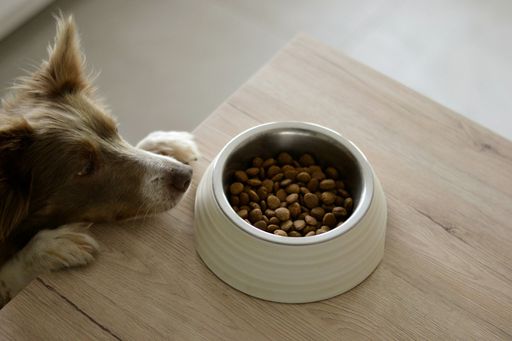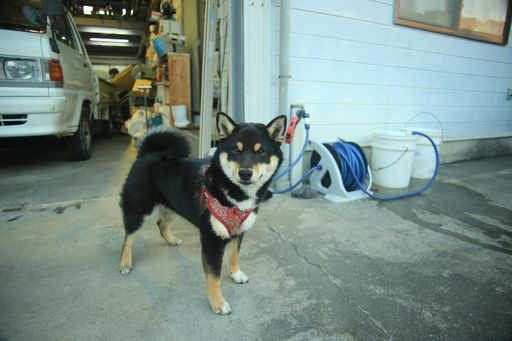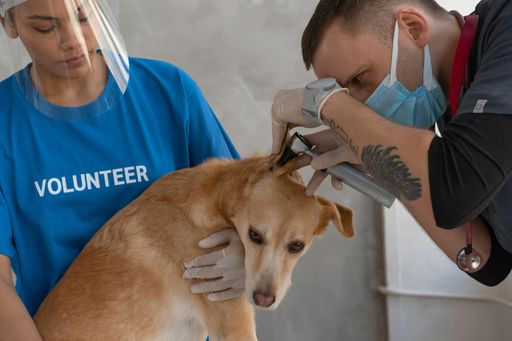Once Fido’s tiny paws are set in your house, you are welcoming a new member of the family. Like a new-born baby, your pooch has no habits and cemented manners yet. It is up to you to bring him up to the type of dog you wanted for a lasting relationship.
As a pet parent, you want your pup to remain happy and healthy during his lifespan.
However, there will be times when your pet is restless, temperamental, and sick, because of bad nutrition, lack of medical attention or because of a disease. Your vigilance and direct attention to small signs of trouble means these medical issues will not worsen into bigger health problems.
Sign 1. Gaining or Losing Weight
Over their lifetime dogs will lose or gain weight based on their age, if they are neutered, and any health disorder they may suffer. A sudden change is a sign of severe sickness.
This is something serious that only your vet can figure it out and find a treatment for the disorder.
Gaining weight
Chubby puppies are so fascinating and nice to cuddle but when they grow up being overweight is far from cute. Fido is at risk of a shorter life expectancy and other health problems.
It could be from too much food. Age is a reason for the calorie imbalance, as they grow old they become less active. But, you still give them the same amount of food resulting in weight gain.
Not enough exercise results in fewer calories burned and weight gain.
Some breeds are just prone to putting on weight such as Labrador retrievers and dachshunds.
It could be from neutering because this affects their expended energy and metabolism.
Chronic illnesses like Cushing’s disease or hypothyroidism are also responsible for your pooch’s overweight.
Losing weight
It seems your dog problems never end; you solved the too much weight problem and now Fido is losing pounds quickly. Here are some reasons:
- Your dog is suffering from exocrine pancreatic insufficiency (EPI) meaning he can’t digest food properly. Their pancreas is not adequate digestive enzymes to maintain their system.
- It’s not only pet parents who suffer from diabetes dogs do too. And it’s not because of sweets but age.
- Refusal to eat and vomiting are signs of liver disease.
Sign 2. Has Trouble Walking
You notice your pooch is not able to walk or stand up or has a slow or awkward gait, there are reasons for this.
Arthritis
Arthritis is a deteriorating disorder in aging dogs. The rigors of a dog’s everyday life take its toll on Fido’s joints causing him to experience intense pain.
Orthopedic issues
Orthopedic problems affect your pooch’s bones, joints or muscles disturbing dog’s walk. Canine often suffer from orthopedic conditions such as cruciate ligament tears, dysplasia of the hips or elbow, and arthritis.
Neurological disorders
Neurological disorders crop up from dog’s central or peripheral nervous system. A dog suffering from a neurological disorder is a scary experience when tremor or seizure kicks in.
Seeing your dog this way breaks your heart. Hire a canine rehabilitation specialist to improve Fido’s movement and to provide pain management.
Sign 3. Changes in Appetite
Your pup’s temporary loss of appetite is no cause for alarm, perhaps your pooch passed a meal. Like you, they might still be full and not hungry or your canine is experiencing a stressful day losing interest in food.
But, refusing more than one meal indicates something serious and needs to be looked into. Your pooch is not feeling well, monitor your dog’s behavior and provide medical aid if needed. Check out these signs showing that your dog has lost its appetite.
- Eating less or nothing at all
- Weight reduction
- Absence of vitality
- Vomiting
Sign 4. Cloudy or Red Eyes
The eyes are the windows to the soul that is why you get jittery when Fido’s eyes are cloudy or red. As a pet parent you don’t want your dog to lose sight or feel awkward.
Experiencing this condition is a normal pattern of aging. Often, cloudy eyes are a sign of eye problems.
Cataracts
Dogs suffer from eye cataracts as humans do and can obscure vision. The lens is made of water and protein, when clamped together they form cataracts.
Dogs acquire cataracts because of age, trauma, genetics, and metabolic diseases like diabetes.
Glaucoma
Glaucoma is a condition where pressure is applied to the causing inadequate fluid drainage. If left untreated, it can result in blindness.
Dry eye
When something is on the surface of the eye clouding it up, Fido is suffering from dry eyes. Severe cases lead to corneal scarring.
Sign 5. Excessive thirst
The rule of thumb is dogs need an ounce of fluid per pound of body weight per day, a 15-pounder needs more than a cup daily. Active dogs need more. Any excess may signal a health problem.
Dehydration
Scorching heat, too much playing and exercise, and illness can induce dehydration in pooches prompting them to look for water. Symptoms of dehydration include increased thirst, fatigue, dry gums and tongue, thick rope-like saliva.
Illness
Medical conditions such as Cushing’s disease, diabetes, cancer, kidney and liver diseases can lead to excessive thirst.
Medication
Some drugs can lead to excessive thirst like prednisone, furosemide, and phenobarbital.



















